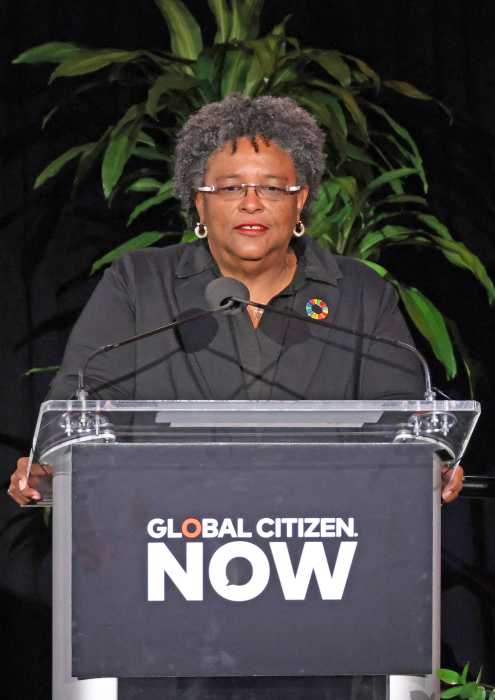The European Union has slapped another regional territory with a financial blacklist, and this comes at a time when leaders of the Caribbean Community (CARICOM) are expressing disgust at what they see as bullying by developed countries.
The latest territory to be blacklisted is The Cayman Islands on which the punitive measure was placed earlier this month, adding it to the US Virgin Islands and Trinidad and Tobago as Caribbean nations affected.
Blacklisting makes it difficult or near impossible for targeted countries to conduct international business as most trans-national financial organisations shy away from the territories for fear that they too would be sanctioned.
Importantly, this blacklisting can lead to correspondent banks suspending their relationship with the target territory — aptly referred as de-risking – making it difficult for persons and businesses within the country to conduct day-to-day purchases abroad because those banks act as clearing houses for international financial transactions.
Inclusion of The Cayman Islands in the EU blacklist regime came as a shock to most because that territory was thought to be compliant with legal requirements, though regarded as a tax haven.
But Cayman is a British Dependent Territory, colony, and in light of Britain leaving the EU and as reported in the UK Guardian newspaper, “the decision will be seen as a shot across the bows of the UK ahead of negotiations on the future relationship with the bloc.”
At the 31st CARICOM Inter-sessional Meeting in Barbados this month, regional leaders stated that they “view the strategy of blacklisting and de-risking, which lead to the withdrawal of correspondent banking services, as an existential threat to the economic security of CARICOM Member States.”
They “deplored the ongoing unilateral, arbitrary and non-transparent blacklisting strategy employed by the EU and now by individual European states like France and the Netherlands.”
Host country Barbados was itself only last year relieved from that incapacitating blacklist after it was forced to go through a process of ‘convergence’ of taxes causing the government to lose a high amount of income as local corporate taxation that was as high as 35 percent was reduced to a maximum of five percent in line with that charged to offshore companies domiciled on the island.
CARICOM leaders stressed that the defensive tax measures threatened by the European States could have serious financial repercussions on vulnerable nations within the regional grouping and their ability to attract the investments needed to build resilient economies.
“The measures have the potential of causing devastating economic, social and political consequences for our states as a result of the harm that will be inflicted on our global image, our economic competitiveness and resource mobilization efforts,” the leaders stated in a communique.
“Heads of Government agreed that the ongoing actions of the European Union constitute a blatant violation of their sovereignty,” they stated, and repeated a call “for the creation of an appropriate intergovernmental tax body with the adequate means and powers to set standards and rules which support an equitable and universal approach to an international tax governance infrastructure.”
The leaders are however not simply crying foul but have delegated prime minister of Antigua and Barbuda to lead negotiations on behalf of the region with respect to correspondent banking.
One such meeting was with members of the United States Congress Financial Services Committee to address the deleterious impact of de-risking on CARICOM Member States.
They reported success coming out of that meeting, but it remains to be seen whether small CARICOM countries can convince the mighty US to encourage its correspondent banks to maintain Caribbean relationships despite EU blacklisting.


























